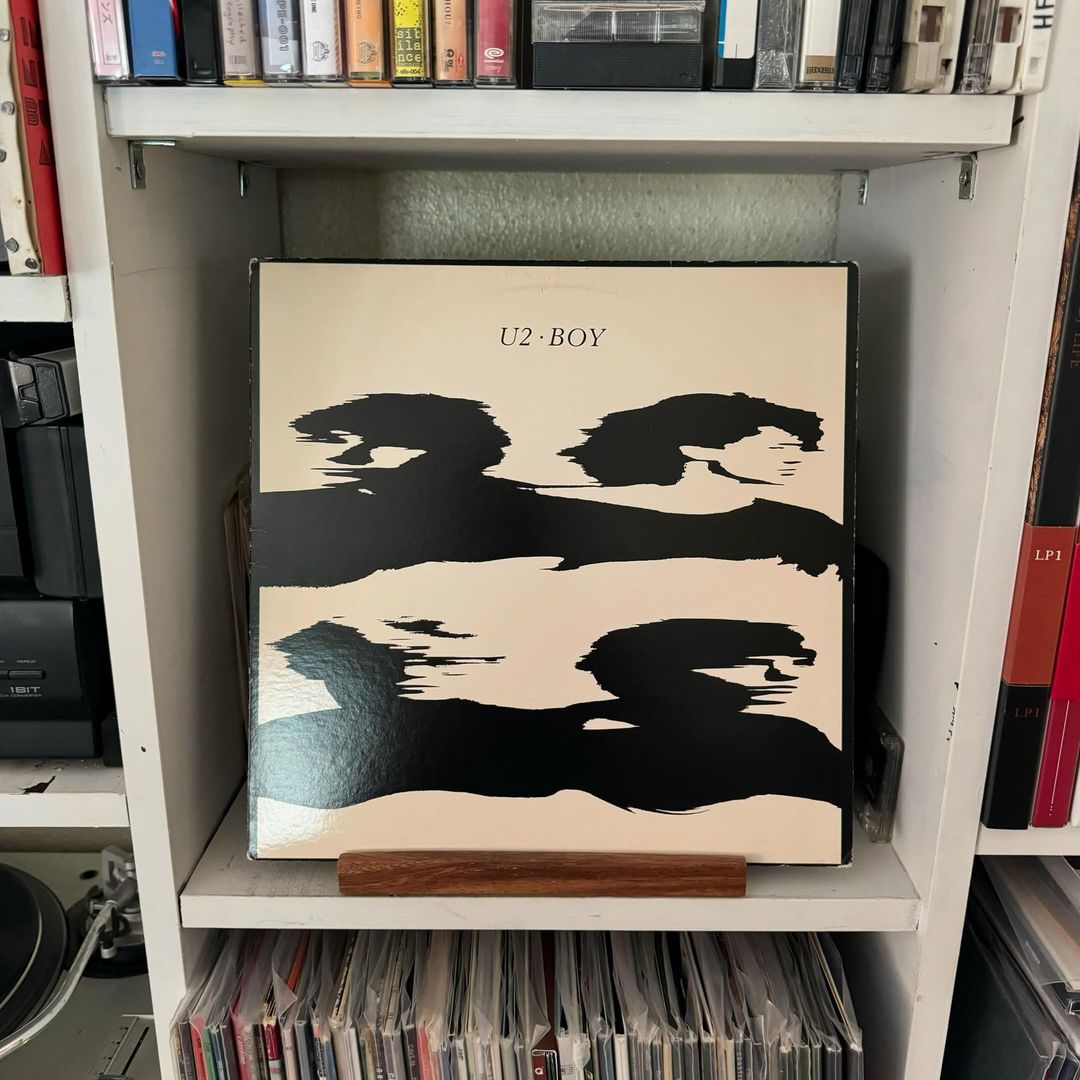
After a career of arena tours, high-profile philanthropy, Platinum records, Broadway soundtracks (remember the Spider-Man musical?), unsolicited album releases, and more hits than you can shake a stick at, it can be hard to remember that U2 was birthed out of the same scene as the Clash, Wire, Joy Division, and the Cure.
But even the most shallow listen to Boy will snap that picture into focus, simultaneously forecasting a prescient image of the iconic band that they would become.
U2’s origin story is the thing every group of teenagers slinging power chords and caveman drumming in their parents’ basements dream of. They started after 14-year old Larry Mullen Jr posted a note on the bulletin board at Mount Temple Comprehensive School looking for members to start a band. Among the five students who showed up were bassist Adam Clayton, guitarist Dirk Evans and his brother David (soon dubbed “The Edge), and a sixteen year old vocalist already known as Bono. They took the name Feedback and began playing sets primarily of cover material. After a year or so, David went off to college and left the group. They decided the new lineup needed a new name and settled on U2.
The fledgling band’s real stroke of luck came on March 18, 1978 when they won the Pop Group ’78 talent contest—a contest for which the prize was a demo session for the Irish branch of CBS Records. That demo gained immediate attention, and in 1979 they were offered a contract by Island Records, the label that still releases their records.
Boy, released a year after their Ireland-only debut EP Three, found the group working with producer Steve Lillywhite, known at that point for his work with groups like Siouxsie and the Banshees, The Psychedelic Furs, and XTC. And while Lillywhite’s contributions were certainly sizable (he produced their next two records and has returned on multiple albums since), the album’s success is largely due to the band’s own electricity.
Mullens and Clayton, perhaps the most overlooked rhythm section in pop music history, is in full force, driving the songs with a moody post-punk energy that they would never quite lose. The Edge fills in the space between their grooves with mad scientist level guitar experiments (more on that later) while Bono howls with a voice and charisma matched by very few.
The tracklist was pulled from the band’s forty song catalog of original songs, which speaking as a songwriter myself, is an insane number for a band at that stage in their career. And they are all bangers. “I Will Follow” remains one of the most celebrated tracks in their catalog, but it’s hardly the only high mark on the record. Even cuts like “A Day Without Me” and “An Cat Dubh” are as exciting as anything they would ever do. “The Electric Co.” remains one of the most kinetic tracks in their collection. “The Ocean,” a subdued ambient ballad, is positively gorgeous, and shines a light on the Edge’s groundbreaking guitar work.
And what guitar work. I have become convinced that Boy is perhaps the single biggest leap forward for the electric guitar since Are You Experienced? While his use of harmonics, dissonant string noise, and echo was borrowed from Bernard Sumner and Bruce Gilbert, he was really the first person to use them musically. As scrapey and aggressive as his playing is here, he uses those techniques to augment his innovative sense of harmony. While Pink Floyd and other prog bands had already been using delay pedals as a rhythmic device, he used his Memory Man to create jittery textures no one had ever heard before.
The Edge is regarded now as one of the most influential guitarists in the world, but what’s amazing is that his style is already pretty well established on this record. Boy casts a shadow on indie rock, post hardcore, shoegaze, and post rock alike. Bands like mewithoutYou, Interpol, Thursday, Explosions in the Sky, and Slowdive are all indebted to The Edge not only for his use of effects pedals, but for the composition of his actual parts. And it is for this reason that Boy might just be the most important guitar record of all time.
Note: my copy has the disappointingly revised cover for the US market, where it was thought (stupidly) that the original cover featuring a young boy might evoke an association with pedophilia. That image is still on the inner jacket though.